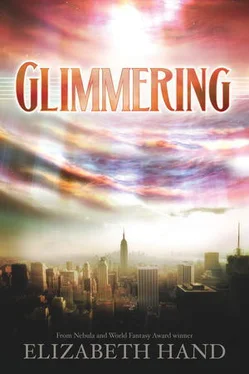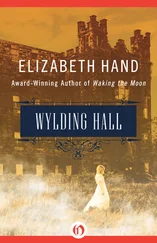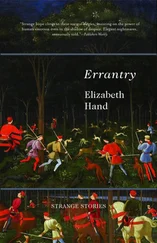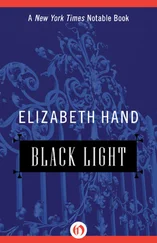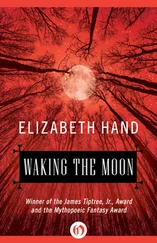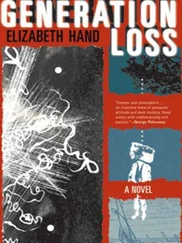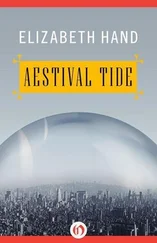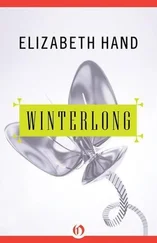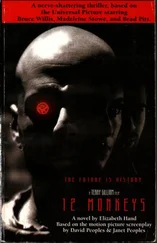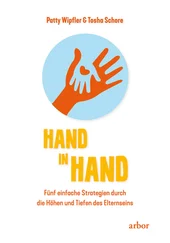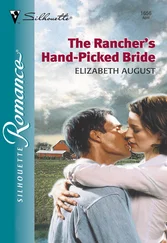Trip traced the outline of the cross branded on his forehead. “Man, if she could see me, she’d definitely think this was it. The end of the world. The end of the fucking world.”
Martin listened, fearful lest the boy stop: it was the most he’d heard Trip say of himself since he’d found him on the beach at Mars Hill. Beneath them the Wendameen rocked gently. Finally he asked, “Is that—is that what you believe?”
Trip gazed upward. Streamers of gold spun from the ominous spiral, slid down to disappear behind that far-off promontory where something burned, smoke like dark thumbprints against the lurid sky. After a moment he shook his head.
“I don’t know. I guess. Or no—no, maybe I don’t.” He frowned. “I mean, if I really thought that, probably I wouldn’t be doing this—”
He opened his hands, cradling the mug of brandy. “I mean, I wouldn’t be letting you take me to New York,” he said. “To look for her. If I really thought it was the end, I guess I wouldn’t care.”
Martin looked away. Because Martin did think it was the end—for him, at least—and somehow that didn’t stop him from caring at all.
“She’s your girlfriend, then? This person you’re going to find in the city?”
“No, she’s not my girlfriend ,” he said “Actually, I hardly even know her.”
“Was she—is she someone you knew from—well, your church?”
“My church?” Trip drank the rest of his brandy, then reached for the bottle and poured more into the mug. “No. She wasn’t exactly a churchgoing girl. I mean, I doubt she was saved or anything like that. She was foreign, for one thing. Russia or someplace, I forget.”
“But—so you want to save her? That’s, um, thoughtful. ”
“No, I don’t want to save her. I just want to—to see her again. That’s all.”
He turned away. His profile against the burning sky looked sharp, almost cruel, the hollows of his cheeks touched with flame, his eyes colorless. Martin’s heart clenched. He tried desperately to think of something to say, something that might redeem the moment, save him from looking pathetic as he sat there staring at this boy as though he were the Rapture, his last best hope of sunrise.
Trip only shook his head. “Thanks for the brandy,” he said, easing himself to his feet. He stretched, looking down at Martin, and smiled; but the older man could see that it was forced. “I’ll do first watch, okay?”
“Okay. Thanks.”
“No prob.” Trip turned and walked away.
The night passed with no more talk between them. Trip woke Martin to stand his watch; then, as night soured into dawn, he brought him a mug of hot tea on deck.
“Thanks,” said Martin, feeling hung over. “We should be shoving off, I guess.”
Unexpectedly, Trip smiled. “It’s been kind of cool, hasn’t it? I mean this whole thing with the boat? ’Cause like you got it all fixed up, and into the water, and—”
He spun on his bare foot, letting his arm swing out to indicate the rainbow sweep of sea, the jutting headlands beyond. “And we made it! We’re there!”
Martin smiled. “Yeah,” he said, gazing into Trip’s blue eyes. “We really have almost made it.”
That night, they came to the East River: College Point, Rikers Island, South Brother Island. To starboard the horizon stretched green and yellow, a waste of spartina and cattails, reek of mussels and mudflats and red crabs like scorpions that nudged up against the Wendameen’s hull upon mats of seagrass. Martin had thought, at least, that he could point out to Trip the glory that was Manhattan.
But from here the island seemed nothing but marshland. A glittering haze hung above the fens, sparked here and there with blue or red. It took Martin some minutes to realize that this was the New York skyline, not so grand a thing as it had been; more a memory of a city moored there above the restless grasses. As they drew nearer the marsh gradually gave way to decrepit waterfronts where buildings had tumbled into the channel, some frozen in mid-fall, beams and flooring and stairs like the gears of an unsprung clock hanging above the water. Pilings, black and reamed with rot, thrust dangerously close to the little boat as it made its passage. Now and then a dinghy or barge, men and women fishing or dragging seines through the ruddy waters. Once they saw three dirigibles in formation above the river, towing something behind them. On shore people moved, the same slow dance of making and unmaking: fires, food, children, shelter; between and behind and atop broken buildings, under tarps, in cars, in houses and apartments and trees. Martin thought of Calcutta, of children living in oil drums along the canals in Djakarta—how quickly New Yorkers had caught up. Odors wafted out to the Wendameen, so that Martin would suddenly grow faint with hunger. Frying fish, chapati, garlic and onions, woodsmoke, meaty reek of unwashed clothes, excrement, incense, disinfectant, autumn leaves: he breathed it all in where he stood in the cockpit, motoring now, a sign of journey’s end; breathed it all out again, saying good-bye.
“So where’re we going to stop?” Trip hopped down into the cockpit, stooping to coil a loose line and set it alongside life jackets and a can of baked beans licked clean. “You know someplace?”
Martin looked at him. Trip’s eyes were wide and shining, his cheekbones streaked with sunburn and hair with silver-blond. He looked absurdly happy and healthy, the very picture of boat-trash in his floppy cable sweater and rolled white pants.
“Do I know someplace?” Martin raised an eyebrow. “You said it was about a girl you had to find. Now where would she be?”
Trip was silent. He leaned against the coaming, steadying himself as they motored between uneven rows of pilings. Martin watched him but said nothing more. They continued on, into a seemingly endless ruined landscape. You think New York looks bad from a Greyhound bus, thought Martin, you think it can never get worse, but hey! Check it out —
He almost laughed.
Refuse bumped up against the boat. From somewhere onshore echoed music, guitar chords churned by bad radio reception or shitty boom box into something almost indecipherable; but Martin realized that he did know it—Sonic Youth, “The Sprawl.”
He did laugh, then. Because just when you think it can never, ever, possibly get anything but worse, someone comes up and bops you on the head with something like this, radiant guitars ringing in the wreckage of New York City, lemony afternoon light masquerading as sunshine, beautiful boy on deck…
For just a moment, for just that one instant, it was perfect. Even if the world was ruined, even if Martin was going to die, even if he would never know love again, never fuck again, never hear another song: if the world ended right now, it would have been perfect.
He began to cry.
Because it was beautiful. Because for that moment he had glimpsed the perfect geometry of desire, death at its apex, art and beauty and yearning bright angles below. He wiped his eyes, took a deep breath, and felt it fall away; felt the world claim him again, for just a little longer.
The breeze left salt and a fine film of oil upon his cheek. He swiped at that as the Wendameen nosed on through the crimson water and the music fell silent and Trip assiduously avoided looking at him. But something of the moment’s radiance remained, something that Martin wouldn’t let go of, not that easily, not without a fight. He adjusted the tiller, tossed his long grey hair back with what he hoped looked like defiance, shot Trip a grin; and began to sing.
It made his chest ache, and his throat; he had trouble catching his breath. Still he sang everything he could remember the words to. Not a great deal, actually. Martin had a terrible voice, there had never been much outside encouragement. He sang “My Little Red Book” and “I Get a Kick Out of You,” “Camelot” and “Yellow Submarine” and “Valentine,” which had an impossible chorus; “Santa Claus Is Coming to Town” and “Amazing Grace” and something he’d learned for his First Holy Communion and hadn’t sung since. He bellowed “Coney Island Baby” and “Baby’s on Fire”—Trip took the tiller, still not a word. Rodgers and Hammerstein and old drinking songs,
Читать дальше
